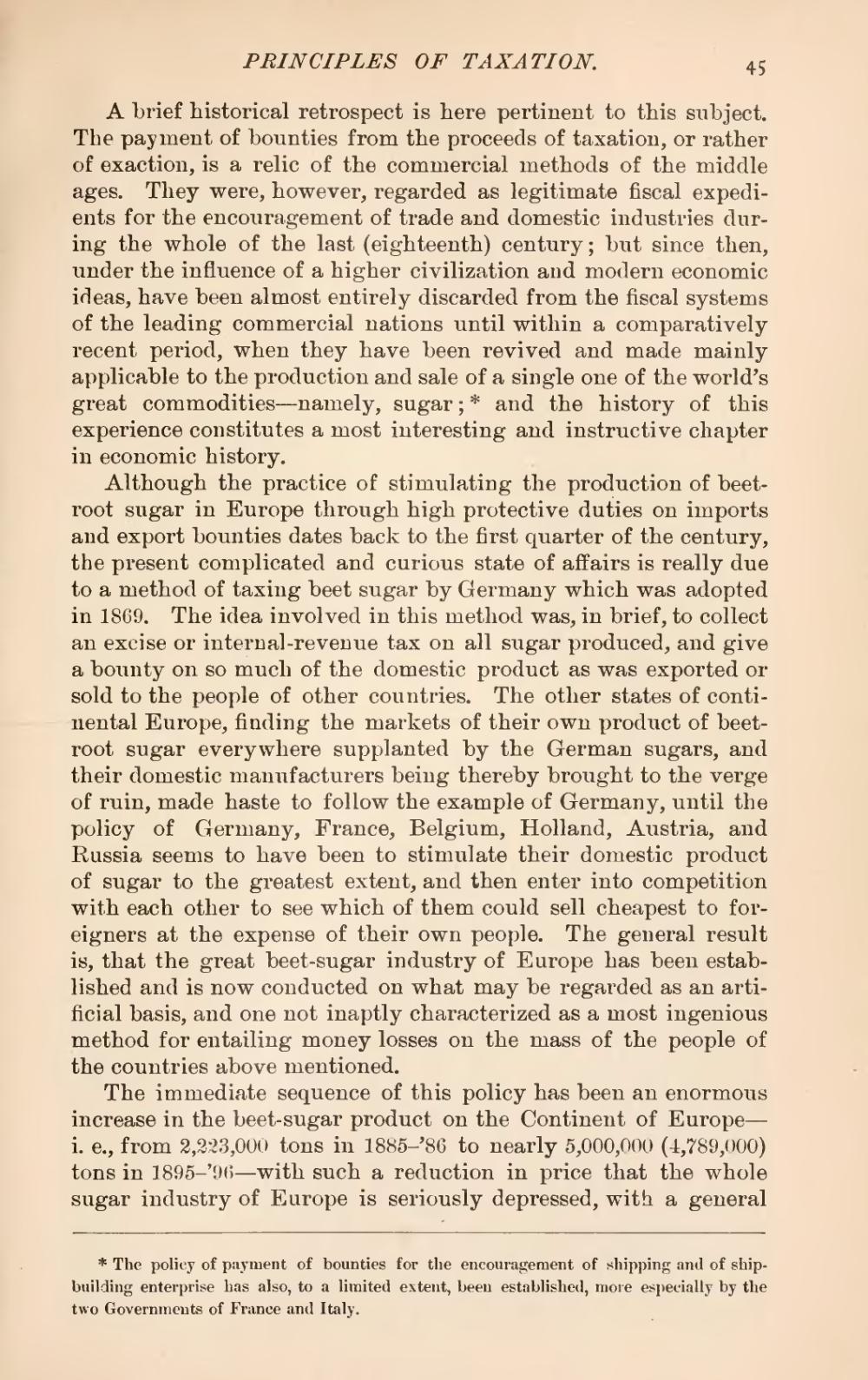A brief historical retrospect is here pertinent to this subject. The payment of bounties from the proceeds of taxation, or rather of exaction, is a relic of the commercial methods of the middle ages. They were, however, regarded as legitimate fiscal expedients for the encouragement of trade and domestic industries during the whole of the last (eighteenth) century; but since then, under the influence of a higher civilization and modern economic ideas, have been almost entirely discarded from the fiscal systems of the leading commercial nations until within a comparatively recent period, when they have been revived and made mainly applicable to the production and sale of a single one of the world's great commodities—namely, sugar;[1] and the history of this experience constitutes a most interesting and instructive chapter in economic history.
Although the practice of stimulating the production of beet-root sugar in Europe through high protective duties on imports and export bounties dates back to the first quarter of the century, the present complicated and curious state of affairs is really due to a method of taxing beet sugar by Germany which was adopted in 1869. The idea involved in this method was, in brief, to collect an excise or internal -revenue tax on all sugar produced, and give a bounty on so much of the domestic product as was exported or sold to the people of other countries. The other states of continental Europe, finding the markets of their own product of beet-root sugar everywhere supplanted by the German sugars, and their domestic manufacturers being thereby brought to the verge of ruin, made haste to follow the example of Germany, until the policy of Germany, France, Belgium, Holland, Austria, and Russia seems to have been to stimulate their domestic product of sugar to the greatest extent, and then enter into competition with each other to see which of them could sell cheapest to foreigners at the expense of their own people. The general result is, that the great beet-sugar industry of Europe has been established and is now conducted on what may be regarded as an artificial basis, and one not inaptly characterized as a most ingenious method for entailing money losses on the mass of the people of the countries above mentioned.
The immediate sequence of this policy has been an enormous increase in the beet-sugar product on the Continent of Europe—i. e., from 2,323,000 tons in 1885-’86 to nearly 5,000,000 (4,789,000) tons in 1895-’96—with such a reduction in price that the whole sugar industry of Europe is seriously depressed, with a general
- ↑ The policy of payment of bounties for the encouragement of shipping and of shipbuilding enterprise has also, to a limited extent, been established, more especially by the two Governments of France and Italy.
